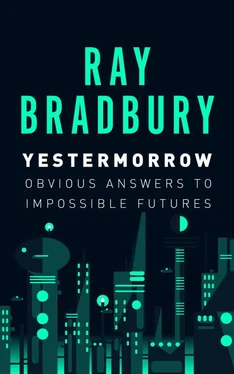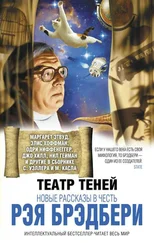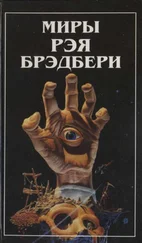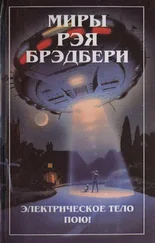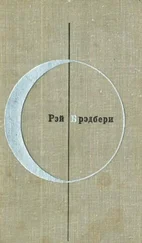Even as I finish this article, our civilization is thinking about the future and pouring it into molds to harden and become the newer machines, which will further prove that, in motion, mankind’s ability to externalize his loves and hates, thus more quickly building or destroying his culture, is seemingly inexhaustible. As long as “science fiction” can keep me alert to all this, I’ll go on writing it. And I’ll go on as long as there is gusto and zest in the writing; for if it should ever become completely and bodily nothing but self-important social and political prediction, I think I would become bored, and my reader bored, too.
I once strongly suspected that fun was the handmaiden, if not the progenitor, of the arts: now I know this for certain. And with a great sense of pleasure and personal well-being I intend to continue in the field for a good many years along with those others who are interested in trying to find a bridge to permanently cross that vast gulf of communication for all of us. I do not know whether tomorrow’s street will be full of human beings with Seashell thimble-size radios whispering in their ears and all the world and its problems moved away from and neglected. Or whether by some miracle we may all carry supersonic stethoscopes with us on our rounds, so that each may know the sound of every other human heart. I only know that it would be interesting to walk on that street and think about it and write about it, before that evening sun goes down.
1953
This article, read by Italian Renaissance scholar Bernard Berenson, caused him to invite RB to Florence.
THE RENAISSANCE PRINCE AND THE BAPTIST MARTIAN
The whole affair had its ridiculous side, especially for the year 1953 when it occurred. Why should the world’s foremost authority on the Italian Renaissance start a correspondence with a fairly suspicious and relatively unknown writer of Martian gobbledygook and science-fictional claptrap?
It was, after all, not the Space Age—that was light-years off in some impossible year. When I dared leave fruit-and-nut country, as California was referred to by some, to invade New York, I often found myself at literary parties introduced as good old Buck Rogers or Flash in the flesh.
Very uneasy times indeed. My books, as with most science fiction in those years, went mostly unreviewed, or popped up among the obits in the back of the New York Times.
All the more incredible then, in the midst of those low-profile years, that the Italian Renaissance authority did indeed write to Jules Verne’s bastard son, and here run the facts:
In early May of that year, I had written an article in The Nation defending my strange preoccupation with technologies and space travel.
On June first I opened my mailbox to find a letter on which in a spidery hand these words were inked: B. Berenson, I Tatti, Settignano, Firenze.
I turned to my wife, saying, “Good Lord, this can’t be from the Berenson, can it?”
“For God’s sake,” said Maggie. “Open it!”
I did and read:
Dear Mr. Bradbury:
In eighty-eight years of life, this is the first fan letter I have written.
It is to tell you that I have just read your article in The Nation— “Day After Tomorrow.”
It is the first time I have encountered the statement by an artist in any field, that to work creatively he must put flesh into it, and enjoy it as a lark, or as a fascinating adventure.
How different from the workers in the heavy industry that professional writing has become!
If you ever touch Florence, come to see me.
Sincerely yours, B. Berenson
I stared at the letter and almost wept.
Come see me.
I was making $90 a week at the time, writing mostly for the small magazines.
Six months earlier I had attended a first screening of the Cinerama process and sat with tears streaming down my cheeks as images of Italy and France and England poured across the screen.
“When, when, oh when,” I said to myself, “will we ever have money to travel?”
Never, was my own silent response. The market for Martians and people who wrote about them was low or nonexistent.
The letter from Berenson terrified me. I put off answering it, afraid to make a fool of myself. Also, there was the question of travel: an impossibility. We would never meet the old man face to face!
Salvation arrived in the guise of film-director John Huston.
On Saint Valentine’s night in 1951 I had dined with Huston and given him copies of my first three books, containing more than 60 of my short stories. I told him very simply and directly that if he liked my books as much as I loved his films, one day we must work together. From Africa, a month later, Huston wrote: “You’re right. Someday we will work together.”
Two years had passed, with only an occasional note from Huston. Now in the late summer of 1953, Huston telephoned, invited me to his hotel, put a drink in my hand and asked: “How would you like to come live in Ireland and write the screenplay of Moby Dick ?”
Years later, Huston was to imitate my response, for the benefit of his friends. My jaw, it seemed, fell literally to my chest, as my skeleton collapsed. When I had put myself back together, I stammered that, very honestly, I had never read the book!
“Well, kid,” said Huston, “get yourself home, read as much as you can tonight, come for lunch tomorrow, tell me if it’s right.”
I stayed up until three in the morning and found old friends leaping from Melville’s text to welcome me—the Bible, and Shakespeare. I prowled the book wildly, plunging in here, wandering there, and at last going back to read that glorious first sentence: Call me Ishmael.
And I was in love.
My family and I shipped for Ireland three weeks later. In the midst of wrestling with “that damned Whale,” I wrote to Berenson, who responded on March 14, 1954:
Thanks for your good letter bringing the glad tidings that you will be coming to Italy in the spring…. If you could let me know a bit ahead just where you expect to be here in Florence, and for how long, it would be best all around….
Thank you for the book The Martian Chronicles …. I have read it with curiosity and admiration…. I cannot and do not mean to try to persuade you that your “framework” seems superfluous. Perhaps you can write only with that trellis to climb on. But your sense of people, their reactions as well as spontaneous actions, is so fine, so delicate, that I could wish you were creating novels written of characters, and characters not engaged in fantastic events…. Let me repeat that I look forward zestfully to meeting you.
Cordially.
Good Grief, I thought, do I head south for one more intellectual free-for-all, to be beat up and bested by a bantamweight Boston exile? But, I had to admit, Berenson hadn’t wasted any time. In this his second letter, he seemed to me anyway, to be measuring my shadow for a possible fall, even though he sugared his gentle half-criticisms with gracious compliments.
With vague misgivings, we headed south.
In Florence, we telephoned I Tatti, and B.B. sent his car for us. Delivered to the villa, we were greeted by Nicky Mariano, Berenson’s personal secretary for some 50 years, an intelligent, warm, and lovely human being. We were escorted to Berenson’s library to await his arrival from a morning’s work on a new book.
Then, suddenly, he was there in the doorway, looking intently at us, a very small man indeed, very frail looking, but energetic in the moment of his speaking. What he said was:
“My Bradbury, I am going to ask you a question. Depending on how you answer it, we shall be friends or not friends.”
I heard my own voice, half trembling, say: “Ask the question.”
Читать дальше
